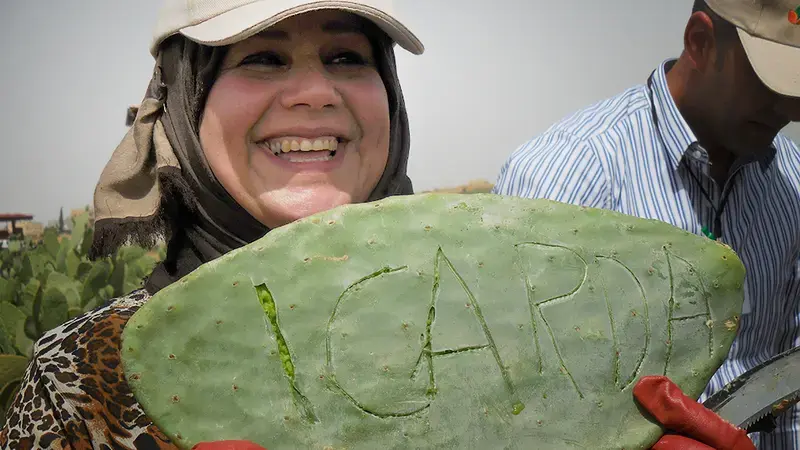ICARDA's New Video Series on Cactus Pear Production

ICARDA released a three-video series on cactus pear production, aimed at farmers in dry regions. The series promotes best-agronomic practices to improve productivity and enhance the quality of the crop at low cost.
2021 is the International Year of Fruits and Vegetables (IYFV) by the UN General Assembly. Several events throughout the year will be dedicated to raising awareness about the important role of fruits and vegetables in human nutrition, food security and health. There will be a special focus on neglected and under-utilized species, within which cactus pear (Opuntia ficus indica) plays an important nutritive and economic role.
Cactus pear has multiple benefits because the young cladodes (stems) can be consumed fresh or cooked as vegetables, and the fruits are tasty and sweet. Both offer outstanding health benefits as they are rich in antioxidants, vitamins, and minerals. Both stems and fruits can also be offered in several sellable forms including juices, marmalades, jams, and jellies, offering extra income on top of their nutritive assets.
Cactus pear grows well even with minimal agronomic inputs in marginal areas, and is therefore important to smallholder farmers in harsh, dry regions, enabling them to generate additional income and improve their livelihoods.
Cactus pear has recently witnessed a global surge of interest, that led to the establishment of the FAO-ICARDA cactus network, which aims to promote the ecological and social benefits of cactus pear through exchange of information, and in 2022 an international congress on cactus pear in Brazil will take place.
ICARDA's Research on Cactus Pear is made possible through the support of our donors, Indian Council of Agricultural Research (ICAR),The Arab Fund for Economic and Social Development AFSED, CRP LIVESTOCK and our partners, Cactus Net, National Agricultural Research Center (NARC) Jordan.

